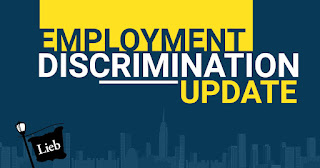At the end of January, 2023, EEOC released Hearing Disabilities in the Workplace and the Americans with Disabilities Act, which is a terrific resource for the 15% of american adults who have some trouble hearing and want to know their rights at work.
If you are hearing impaired, remember that the ADA is just the floor of your rights so you should always have your attorney examine whether your state or locality provides your with additional protections. To illustrate, the ADA only applies to employers with 15 or more employees, but states, like NY have no minimum employee threshold for anti-discrimination laws to apply (the New York State Human Rights Law at Executive Law 296), which has been the law of the state since February 8, 2020.
Regardless, the EEOC's released document is a great resource because it includes a series of question-and-answers for both job applicants and employees.
Of greatest interest, you should look at the examples of accommodations that should be provided for those with a hearing related disability. The list of examples includes:
- Access to a video relay service or video remote interpreting service using equipment such as a videophone, computer, laptop, tablet, or smartphone.
- A hearing aid-compatible telephone headset, a telephone amplifier, and/or adapters for using a phone with hearing aids or cochlear implants.
- Appropriate emergency notification systems (for example, strobe lighting on fire alarms or vibrating pagers).
- Enabling the streaming of sound directly from a device to hearing aids or cochlear implants.
- Utilizing accessibility features of mainstream technology (for example, using the captioning feature on virtual meeting platforms).
- A voice carry-over telephone, captioned telephone, text telephone, or TTY.
- Equipment used for hearing protection to block noise or to protect hearing function, including equipment that can be used with hearing aids.
- Assistive software or applications (for example, for automated captioning, voice recognition, videoconferencing, or sound detection).
The point is that those with a disability have a right to enjoy equal employment opportunities and if they aren't afforded such a right by their employer or prospective employer, they can sue and they should win big damages.
